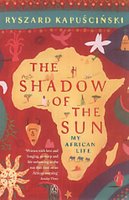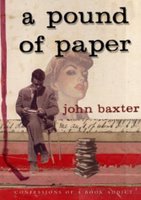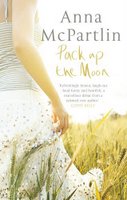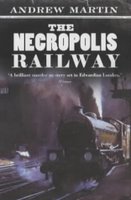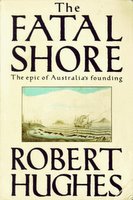
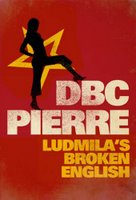
I find myself struggling to like DBC Pierre. I did like
Vernon God Little when I read it, but I would be hard pressed to remember a single thing about it now and I know a lot of people hated it. Recently I heard DBC being interviewed on Rattlebag and he made his new book sound really interesting. He made the situation in the Caucasus sound grim and overwhelming and as though it would make a great subject for a novel. And it would. But this is not that novel.
The story concerns Ludmila and her family who live on the constantly shifting border between two warring zones in... I want to say Armenia(?). At the beginning of the book Ludmila's grandfather, whose pension is the only income the family has, dies. So someone has to become the new breadwinner for this unpleasant, backbiting family. But Ludmila has plans to escape to the West with her boyfriend and make a new life for herself there.
During the meanwhile, over in an England made paranoid by terrorist threats, conjoined twins (one conservative, one liberal, one weak, one strong, oh the symbolism!) are separated and set loose on an unsuspecting public, having lived in a sheltered home all their lives. One of them is looking to crawl back into the home, the other wants to get out and have some sex. And if he has to order a young woman off the Internet from the Caucasus, so be it.
Pierre's dialogue is superb, and his story - what there is of it - is reasonable, but his actual narrative is awful and his descriptions are so offputting that they leave you more confused than you would have been if he'd described nothing at all. Eileen Battersby's comment that you should only write a book if you've something to say is unfair, because he does have something to say about what a luxury it is to be able to worry about terrorism and to fear bombs, when there are so many people for whom getting shot is a very real daily possibility that they can do nothing to avoid because poverty has left them without any choices. But I had to look hard to find that point, and I only found it because I was well disposed towards the book to begin with.
Compare and contrast with
A Short History of Tractors in Ukrainian, which also deals with former USSR states and how people got out of them. Billed as a comedy, this book is in fact more like one of those chirpy, hummable Beatles songs that actually turns out to be lyrically dark and quite depressing.
The story concerns a family of Ukrainian immigrants to Cambridgeshire. When the mother dies, the father (who is eighty-six) decides to marry a thirty-four year-old Ukrainian woman in order to help her stay in England after her visa runs out. The novel follows the efforts of his two middle-aged daughters to extricate their hapless father from the clutches of this scheming woman and her supposedly genius son. It's a very quick read and does actually have some stuff about tractors in it, but for the characters in this book, much of the awfulness of Eastern Europe is consigned to the past and has a discreet veil drawn over it. Until, of course, it rears its loud, garish head again in the shape of Valentina, who terrorises everyone and everything around her in an effort not to be sent back to Ukraine.
The book raises some serious issues about older people and their rights and abilities, but ultimately relies on a whimsical and Anne Tyler-ish wrapup that allows everyone to feel better about themselves. Maybe I'd have liked it better if it was grimmer all over, but then, I'm maybe a little young to be the target market for this book, and maybe the target market has had enough of that unpleasantness to be going on with, thank you very much.





